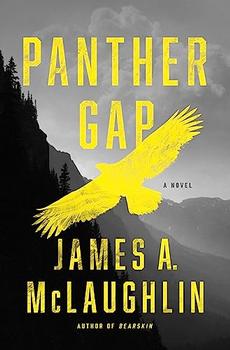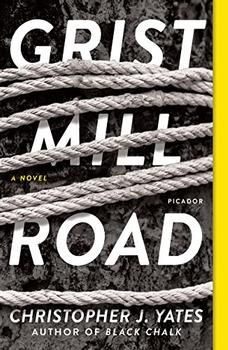Summary | Excerpt | Reviews | Beyond the book | Read-Alikes | Genres & Themes | Author Bio

"What you have come for is death." The second-person address and the sobering message make for a jolting start to The Animals. It is 1996 and Bill Reed, who runs the North Idaho Wildlife Rescue, has been called to help a moose hit by a truck – "the highway was an abattoir." He arrives on the scene to find that the animal has a broken hip and leg. The choice is between a tranquilizer dart and a rifle. "Once upon a time, you told yourself that you would be no killer, that this was how you would live your life. And yet you learn and relearn that everything is the same. The animals will call you. And sometimes you will answer with gunfire." In the end they kill the moose; it will be butchered for meat.
This gritty opening sequence establishes themes that will be essential to the novel: the fine line between instincts and decisions, the moral dilemmas involved in environmentalism, and the seeming inescapability of violence. Bill inherited the wildlife refuge from his Uncle David and now, a decade later, is in danger of losing it. A Fish & Wildlife warden has been giving him trouble about keeping federally protected species in cages without proper permits – a bald eagle, a wolf, and especially Majer the blind grizzly bear, rescued from a gas station parking lot. Bill has Grace, the refuge veterinarian (and his girlfriend), on his side, but it is unclear whether they and a local judge have much of a case against federal regulations.
Soon Bill has even bigger trouble on his hands. The actions of twelve years ago catch up to him when his buddy Rick, just released from prison in Nevada, calls and says he is coming to get his share of the money they got in the heist that led to Rick's arrest. Every other chapter returns to 1984 to show how these two juvenile delinquents got embroiled in drugs, gambling, and holdups in Reno. Retreating even further into the past, Kiefer shows the two boys meeting at their Battle Mountain trailer park in 1974. An incident from 1976 paved the way for Bill's future career, when his brother helped them rescue a red-tailed hawk with a broken wing.
As the novel alternates between its two time periods, it sets up increasingly tense storylines. One is the story of how Bill and Rick got mixed up in the burglary, and why only one of them got away; the other is what will happen when, with a major blizzard brewing, Rick arrives in Idaho looking for money and an apology. Kiefer maintains perfect balance between these two gripping plot strands. As Bill admits his criminal past to Grace, he wonders if he can ever really be free of it. Especially with the refuge's existence under threat, he is tortured by the thought of what he owes to the animals in his care. They were his chance at a new life, and now he is not sure he can even ensure their continued safety.
Most of the novel is written in the third person, but the second person recurs occasionally; in one stunning passage Kiefer seems to imply that the speaker in such cases is actually one of the animals. There are no speech marks – something I often find disorienting in a novel, but it did not bother me here. The language, especially about nature, is unfailingly poetic, even alliterative, as in "slashes of sage green like scraggly mint blasted pale by the sun and the wind and the winter's high desert snow." Only in one place did I note that the writing was overblown: "A grainy and disconsolate luminescence lining the scalloped and rolling clouds to the north" seemed to me to have a weighty adjective or two too many.
Ultimately, this is a story about the decisions we make and the inevitable consequences they set in motion for ourselves and others. It is also about the ironic distance between wildness and civilization. Human society is not portrayed very positively here: it is all bars, casinos, and brutal fights. By contrast, the refuge is a place of peace and regeneration. How close are humans to animals? And, more metaphorically, who are the real 'animals' of this novel? Judging by their behavior, it is the human characters that are more beastly here.
The Animals has been described as a literary thriller, and it does have the pace and excitement to warrant such a description, but it is also a deeply philosophical book about the place of humanity in nature. I highly recommend it, especially if you have enjoyed books by T.C. Boyle, Philipp Meyer or David James Poissant. This may well prove to be one of the best novels of 2015.
Additional Information
Christian Kiefer is a musician as well as a novelist. He used a crowdfunding campaign to raise the money to create What You Have Come for Is Death, a soundtrack album to accompany The Animals. It released on limited-edition vinyl on March 24, 2015.
![]() This review was originally published in The BookBrowse Review in April 2015, and has been updated for the
January 2016 edition.
Click here to go to this issue.
This review was originally published in The BookBrowse Review in April 2015, and has been updated for the
January 2016 edition.
Click here to go to this issue.

If you liked The Animals, try these:

by James A. McLaughlin
Published 2024
The thrilling follow-up to the Edgar Award–winning Bearskin, about two siblings on the verge of inheriting millions but who discover dark secrets in their family's past.

by Christopher J. Yates
Published 2018
The highly anticipated new novel from the author whose debut was called "The smart summer thriller you've been waiting for...The novel you should be reading tonight" (NPR's All Things Considered) and was named a Book of the Year by NPR and an Entertainment Weekly Must-List Pick.
If you want to build a ship, don't drum up people... but rather teach them to long for the endless immensity of the...
Click Here to find out who said this, as well as discovering other famous literary quotes!
Your guide toexceptional books
BookBrowse seeks out and recommends the best in contemporary fiction and nonfiction—books that not only engage and entertain but also deepen our understanding of ourselves and the world around us.